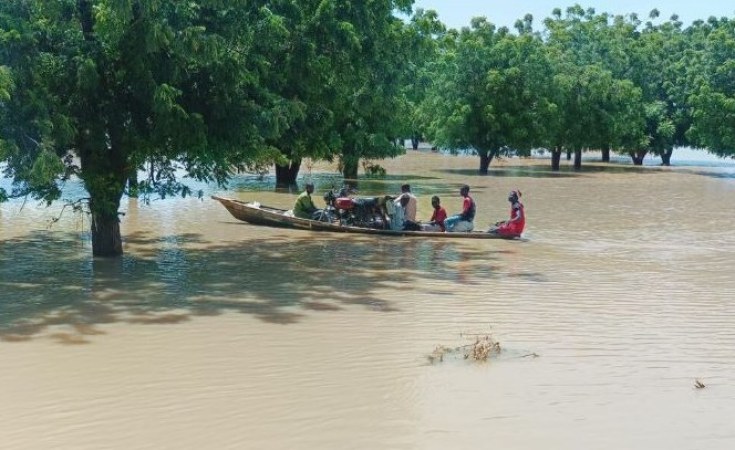For Nigeria and Nigerians, the year 2022 was a rollercoaster ride of sorts. As a year preceding the country's general elections in 2023, it was expected to hold a lot of political drama.
But there was a lot more besides.
In addition to the general state of insecurity, including kidnappings for ransom and other crimes, the year also brought high inflation, protracted strike action by university lecturers, a major terror attack on a church, jailbreaks and the worst floods in a decade.
At The Conversation Africa, academic experts looked at these issues and offered insights and solutions. Here are four essential reads on these developments.
Mother of all strikes
In February 2022, members of the Academic Staff Union of Nigerian Universities, an umbrella body for Nigerian university teachers, began what was described as an indefinite strike. It lasted about nine months. Dele Ashiru, a lecturer at the University of Lagos and member of the national executive council of the lecturers' union, explains that the root of the crisis was underfunding of the public education system and the failure of the government to implement an agreement it reached with the union in 2009.
When terror hits the church
A June Sunday morning mass shooting and bomb attack on a Catholic church in Owo, south-west Nigeria, left 40 people dead, including children. Sadly, in the course of the year, such violence became all too familiar for Christians in Nigeria. Data collected by the Armed Conflict Location and Event Project showed that as at August 2022, there had been 34 attacks on church premises. Oluwole Ojewale, a regional coordinator at the Institute for Security Studies, says these incidents don't happen in a vacuum. They are driven by jihadism, pastoral conflicts and related criminality.
Jailbirds escape
Since 2015, there have been at least 14 jailbreaks in Nigeria. The largest was in 2021 when gunmen attacked Owerri correctional centre in Imo State and freed 1,844 inmates. But the 5 July 2022 attack on Kuje correctional facility by suspected Boko Haram terrorists, when 879 inmates escaped, was even more shocking because it happened in the nation's capital city, Abuja. Obafemi Awolowo University academics Lanre Ikuteyijo and James Olabisi Ayodele describe jailbreaks as a sign of the need to reform the country's justice system.
The great floods
Although floods are nothing new in Nigeria's often densely populated cities, the 2022 flooding was in a class of its own - the worst in a decade. It killed over 600 people, displaced 1.4 million residents and destroyed 89,348 houses, while not sparing 70,566 hectares of farmlands and crops. Olasunkanmi Habeeb Okunola, visiting scientist at the Global Change Institute at the University of the Witwatersrand and the Institute for Environment and Human Security, unpacks how the capacity of Nigerians to cope with and reduce flood risks is determined by factors such as housing, drainage, transport infrastructure, education and income.
Adejuwon Soyinka, Regional Editor West Africa


